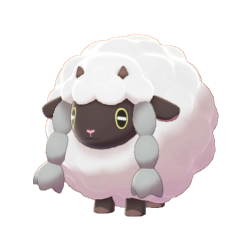wilhelmina bai / d8 / fin
Dec 10, 2019 14:06:43 GMT -5
Post by goat on Dec 10, 2019 14:06:43 GMT -5
wilhelmina bai

17
she/her
district 8

17
she/her
district 8
Yarn is expensive. For a district whose worth is based solely on the textiles it produces, you wouldn’t think it would be. Some days it seems like a luxury for those trying to obtain it outside of the factories. The rich assholes who own those factories, they can afford as much yarn as they want, tossing the spools down to the workers who slave over their sewing machines. They don’t care about the cost, or the waste of tossing unused or frayed spools into the garbage. It’s nothing to them.
Wilhelmina wants to knit more, but she can’t keep stealing yarn. If she gets caught again, she’ll get in trouble, and she doesn’t want to be removed from Miss Durham’s farm. This is the last resort for her, an intervention by her social worker to keep her out of the juvenile detention center. The week she’d spent there last year had been hell. Her social worker had said she was a “good girl” who “didn’t deserve to end up in a place like that”, whatever that means, so she called in a few favors and had her placed at the farm.
Miss Durham’s farm is on the outskirts of the district. It isn’t much of a farm, just a big house with a good chunk of land, but the latter is far too long of a name. The only animals she cares for are sheep. She said she used to have chickens, back in the day, but you can’t make blankets out of eggs. Now she only has the sheep. She sells their wool to people who can refine it, package it, and bring it to stores, because she’s far too busy to do it herself, and she makes more money that way. Wilhelmina believes it. The house is beautiful, and the land well maintained. She never dreamed that a place like this could exist in Eight.
Wilhelmina had been born an orphan. Her parents, names and location unknown, had given her up at birth. She’ll never know why, and sometimes it bothers her. Sometimes she dreams of tracking them down, but she knows it’s impossible— their names were wiped off any records they would have been on. Her last name was given to her by her first foster family. They had been kind, and she’d stayed with them for a few years, but then the father had gotten injured at work, and they couldn’t afford to take care of the foster children.
She was moved to another family, which didn’t last long. Their biological children were resentful toward the foster kids that came and went. One of them had snuck up on Wilhelmina while she was doing schoolwork and cut off a thick chunk of her hair. Wilhelmina responded by slapping the girl across the face. She was promptly removed and sent to a group home.
This wasn’t a home for so-called troubled children, not yet. She’d be sent to that one after she was caught stealing from the market. The group home had been steadily losing funding for years, after failing more than one of their board evaluations, which led to food scarcity among the children. Items were hidden in bedsheets and stuffed inside pockets. Wilhelmina’s stash had been stolen when she was at school, and her attempts to find the other children’s stashes proved fruitless. She’d been caught at the market with her backpack full of stolen goods. She showed no remorse— she was starving, only doing what she needed to to survive— which had her branded as a delinquent and moved into a different home.
The move had done nothing to “fix” her, like the useless adults in her life had hoped it would. Granted, there was nothing to fix. Teenagers who act out aren’t bad kids. They act out because they aren’t being treated the way they deserve. They act out because they have trauma that hasn’t been addressed, because they’re hungry, because they’re living in less than ideal conditions. They don’t need to be fixed. They need to be taken care of.
Wilhelmina continued on being whoever she was. She didn’t have the words to define herself. She didn’t have friends, and she didn’t want any, but that meant she didn’t get out of the house, and she was tired of meandering through life as if she had no purpose. She took up knitting, using a secondhand set of needles from the thrift store. When she was tired of digging out half-used spools of yarn from dumpsters behind factories, she moved on to stealing them, scooting into stores in the town square mostly unnoticed and swiping spools into her bag.
One of the stores had been keeping tabs on her. They were convinced she’d been the one stealing from them, but they didn’t have proof, not until a new cashier spotted her digging into the discount bin. She was sent to the local juvenile detention center and ordered to pay back a sum of money equivalent to all the goods she’d stolen. It felt like a life sentence. She was a poor teenager with no family and a fresh criminal record. There was no way she could pay the money.
She had resigned herself to going back into custody, being unable to pay her fine, when her social worker sent her to Miss Durham’s farm. She regularly took in foster children who were unable to succeed in other settings. The children seemed to thrive at the farm, a calm place where they were able to sort out their issues without fear of punishment. She’s tough, but she’s the closest thing to a stable parental figure these children have ever had. When she heard about Wilhelmina’s fine, she paid the entire thing.
It was the greatest kindness Wilhelmina had been shown in years. She pledged to do better. She wanted to do better. It was hard to kick old habits, and she’s still trying, but it’s easier to curb the urge to steal when you have a full belly. Instead of struggling every day, she sits out in the field with the sheep and knits with yarn that was bought for her. Her life isn’t perfect, not even close, but it’s good enough.
Wilhelmina wants to knit more, but she can’t keep stealing yarn. If she gets caught again, she’ll get in trouble, and she doesn’t want to be removed from Miss Durham’s farm. This is the last resort for her, an intervention by her social worker to keep her out of the juvenile detention center. The week she’d spent there last year had been hell. Her social worker had said she was a “good girl” who “didn’t deserve to end up in a place like that”, whatever that means, so she called in a few favors and had her placed at the farm.
Miss Durham’s farm is on the outskirts of the district. It isn’t much of a farm, just a big house with a good chunk of land, but the latter is far too long of a name. The only animals she cares for are sheep. She said she used to have chickens, back in the day, but you can’t make blankets out of eggs. Now she only has the sheep. She sells their wool to people who can refine it, package it, and bring it to stores, because she’s far too busy to do it herself, and she makes more money that way. Wilhelmina believes it. The house is beautiful, and the land well maintained. She never dreamed that a place like this could exist in Eight.
Wilhelmina had been born an orphan. Her parents, names and location unknown, had given her up at birth. She’ll never know why, and sometimes it bothers her. Sometimes she dreams of tracking them down, but she knows it’s impossible— their names were wiped off any records they would have been on. Her last name was given to her by her first foster family. They had been kind, and she’d stayed with them for a few years, but then the father had gotten injured at work, and they couldn’t afford to take care of the foster children.
She was moved to another family, which didn’t last long. Their biological children were resentful toward the foster kids that came and went. One of them had snuck up on Wilhelmina while she was doing schoolwork and cut off a thick chunk of her hair. Wilhelmina responded by slapping the girl across the face. She was promptly removed and sent to a group home.
This wasn’t a home for so-called troubled children, not yet. She’d be sent to that one after she was caught stealing from the market. The group home had been steadily losing funding for years, after failing more than one of their board evaluations, which led to food scarcity among the children. Items were hidden in bedsheets and stuffed inside pockets. Wilhelmina’s stash had been stolen when she was at school, and her attempts to find the other children’s stashes proved fruitless. She’d been caught at the market with her backpack full of stolen goods. She showed no remorse— she was starving, only doing what she needed to to survive— which had her branded as a delinquent and moved into a different home.
The move had done nothing to “fix” her, like the useless adults in her life had hoped it would. Granted, there was nothing to fix. Teenagers who act out aren’t bad kids. They act out because they aren’t being treated the way they deserve. They act out because they have trauma that hasn’t been addressed, because they’re hungry, because they’re living in less than ideal conditions. They don’t need to be fixed. They need to be taken care of.
Wilhelmina continued on being whoever she was. She didn’t have the words to define herself. She didn’t have friends, and she didn’t want any, but that meant she didn’t get out of the house, and she was tired of meandering through life as if she had no purpose. She took up knitting, using a secondhand set of needles from the thrift store. When she was tired of digging out half-used spools of yarn from dumpsters behind factories, she moved on to stealing them, scooting into stores in the town square mostly unnoticed and swiping spools into her bag.
One of the stores had been keeping tabs on her. They were convinced she’d been the one stealing from them, but they didn’t have proof, not until a new cashier spotted her digging into the discount bin. She was sent to the local juvenile detention center and ordered to pay back a sum of money equivalent to all the goods she’d stolen. It felt like a life sentence. She was a poor teenager with no family and a fresh criminal record. There was no way she could pay the money.
She had resigned herself to going back into custody, being unable to pay her fine, when her social worker sent her to Miss Durham’s farm. She regularly took in foster children who were unable to succeed in other settings. The children seemed to thrive at the farm, a calm place where they were able to sort out their issues without fear of punishment. She’s tough, but she’s the closest thing to a stable parental figure these children have ever had. When she heard about Wilhelmina’s fine, she paid the entire thing.
It was the greatest kindness Wilhelmina had been shown in years. She pledged to do better. She wanted to do better. It was hard to kick old habits, and she’s still trying, but it’s easier to curb the urge to steal when you have a full belly. Instead of struggling every day, she sits out in the field with the sheep and knits with yarn that was bought for her. Her life isn’t perfect, not even close, but it’s good enough.






























































